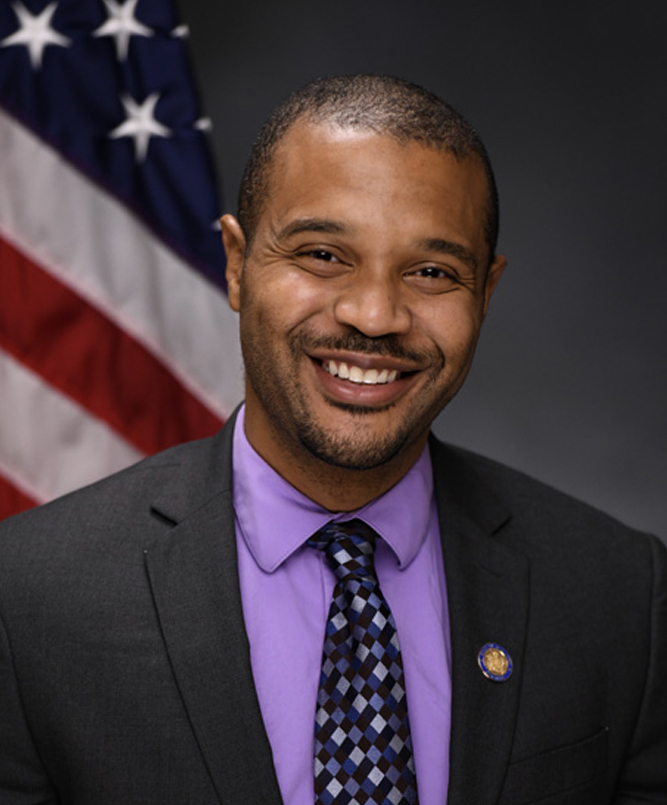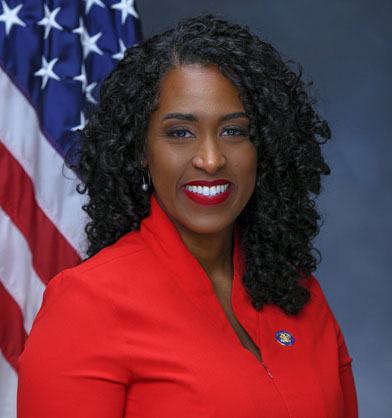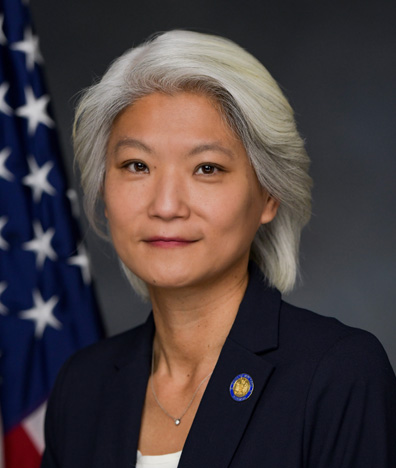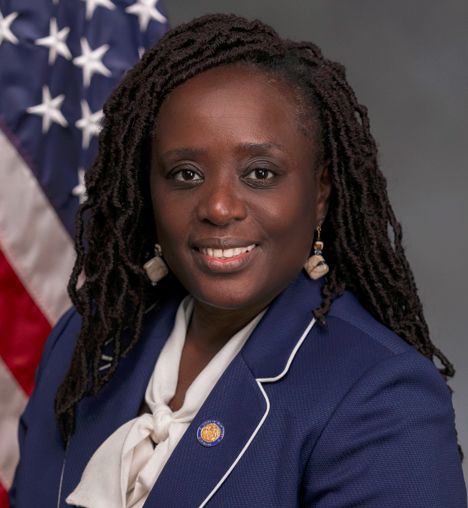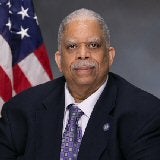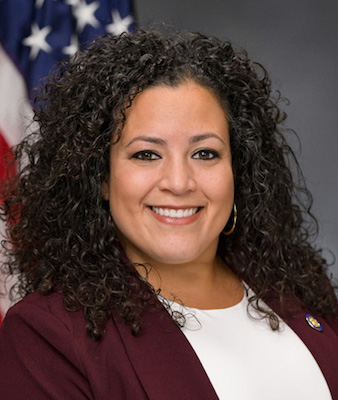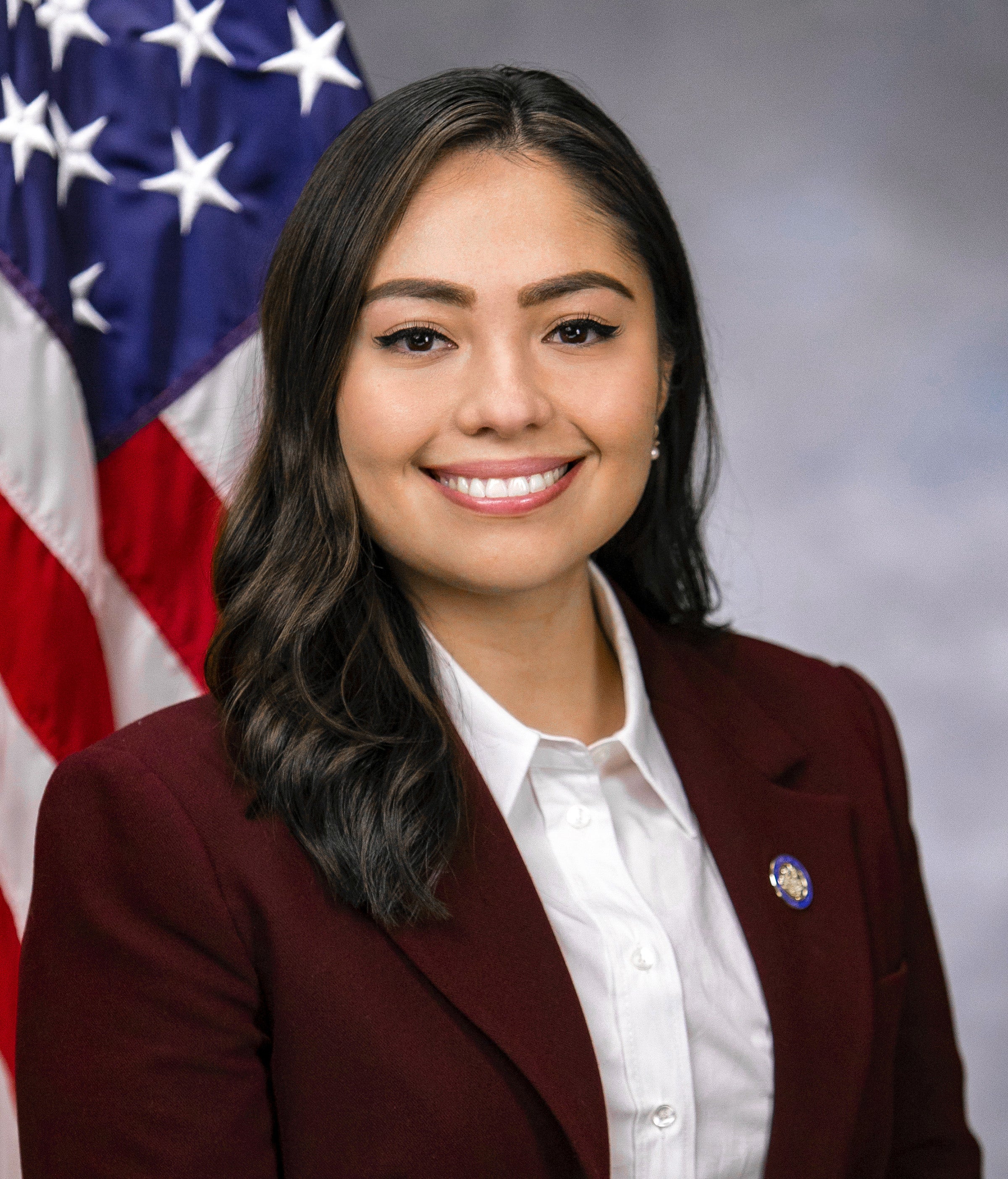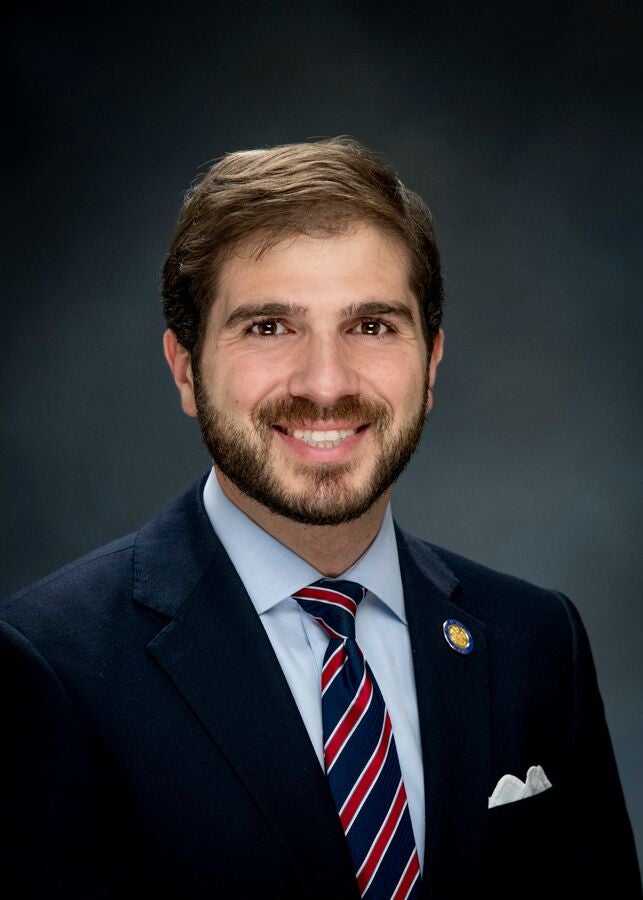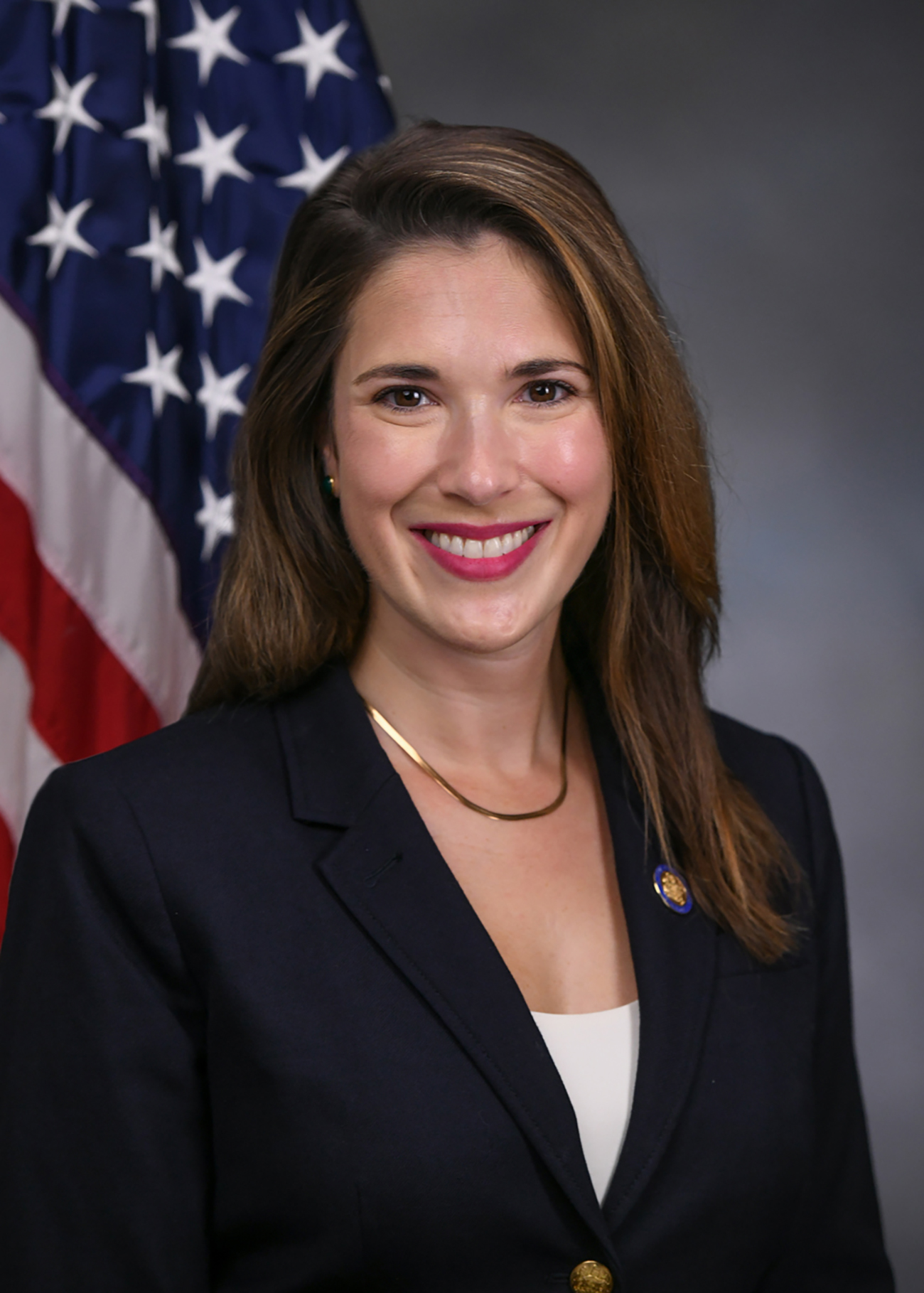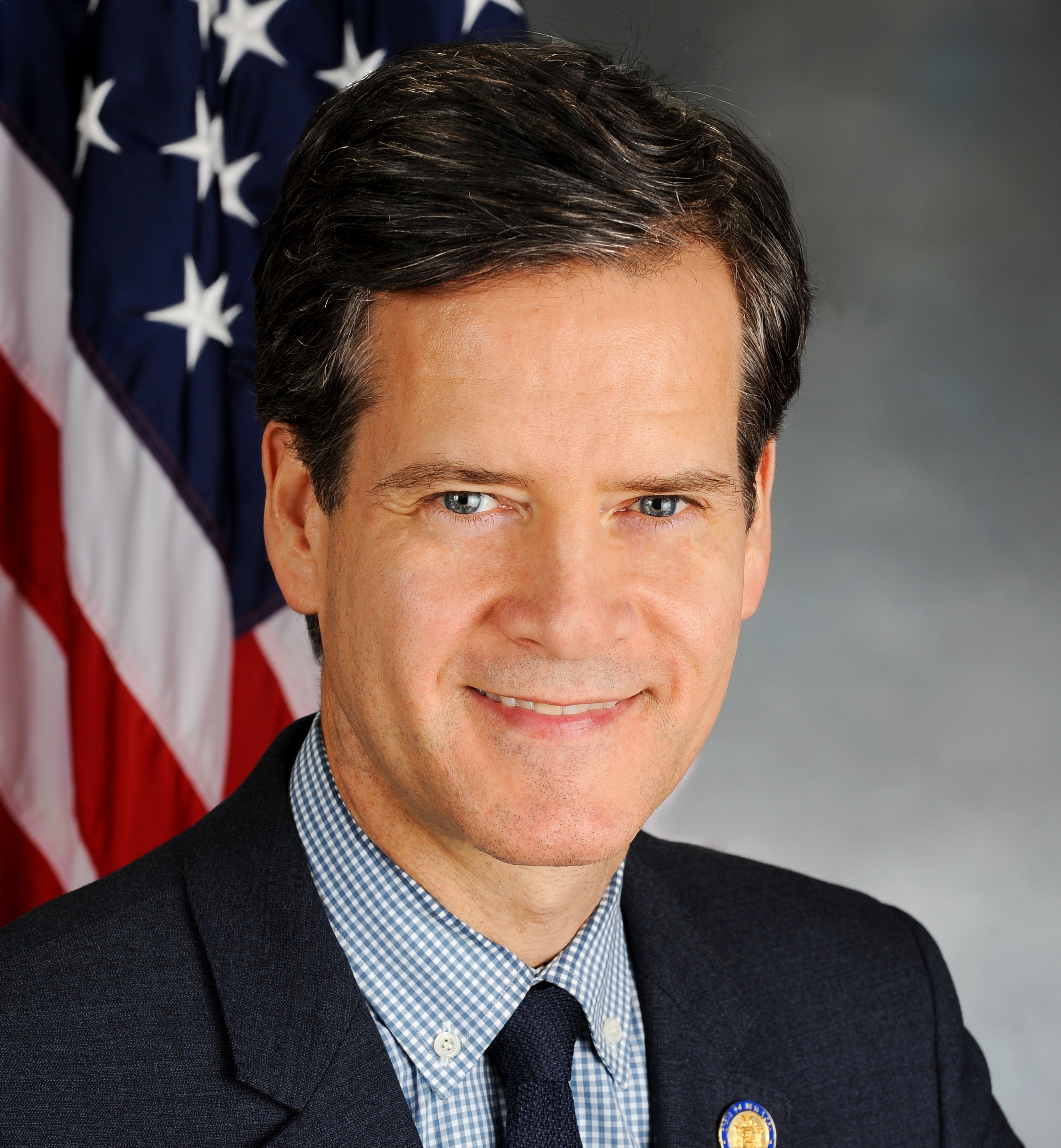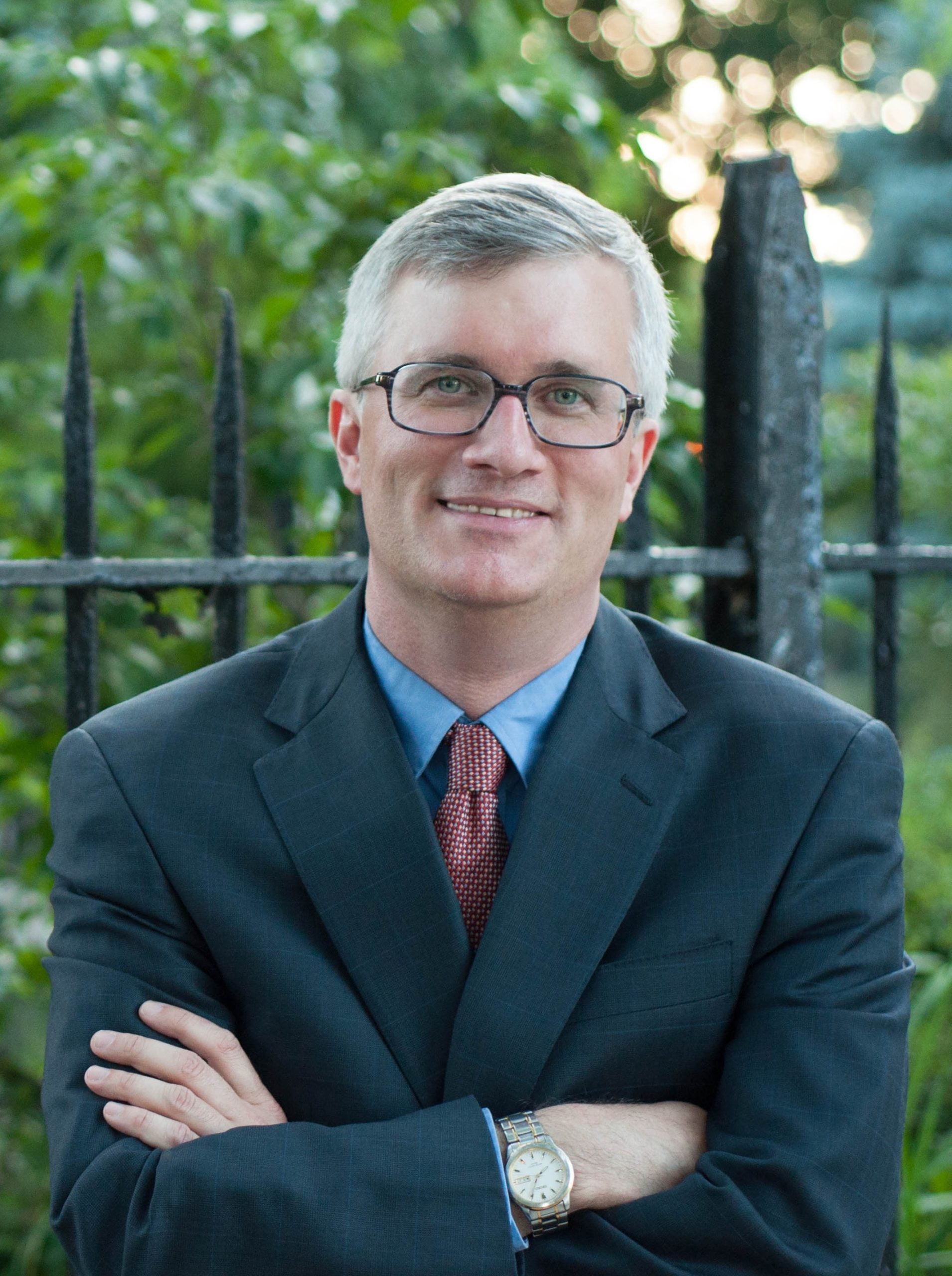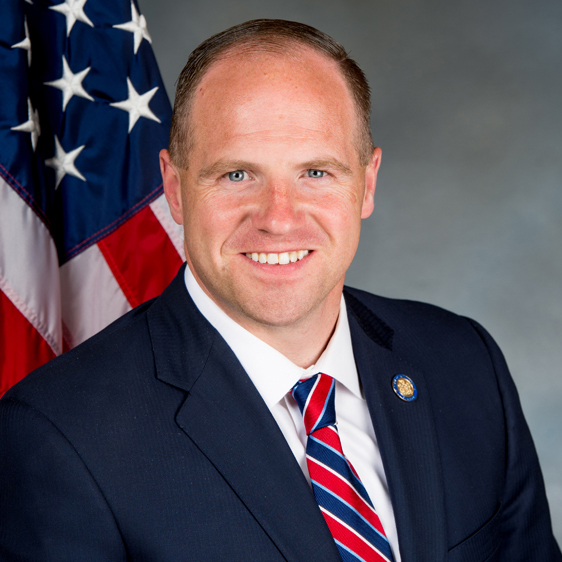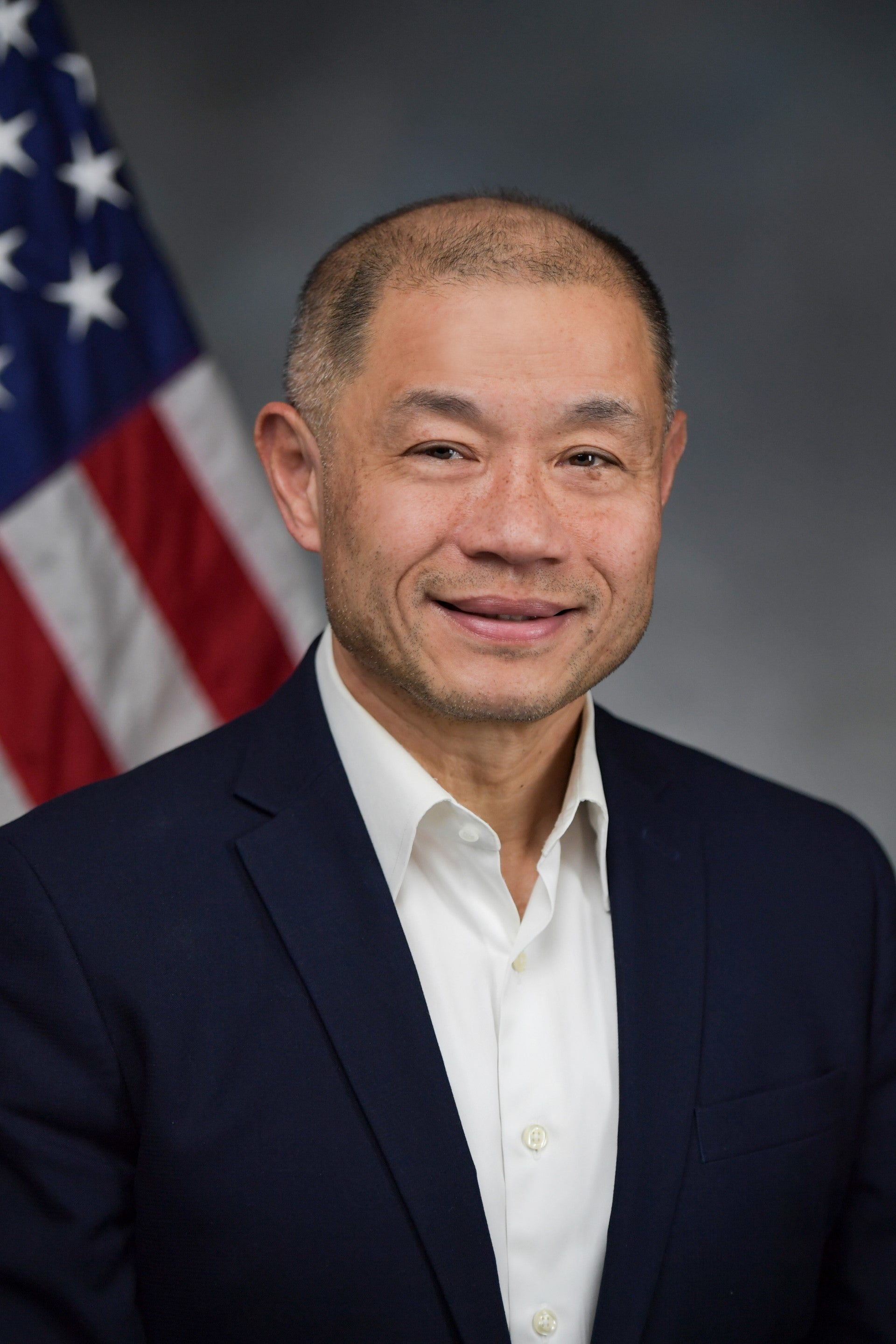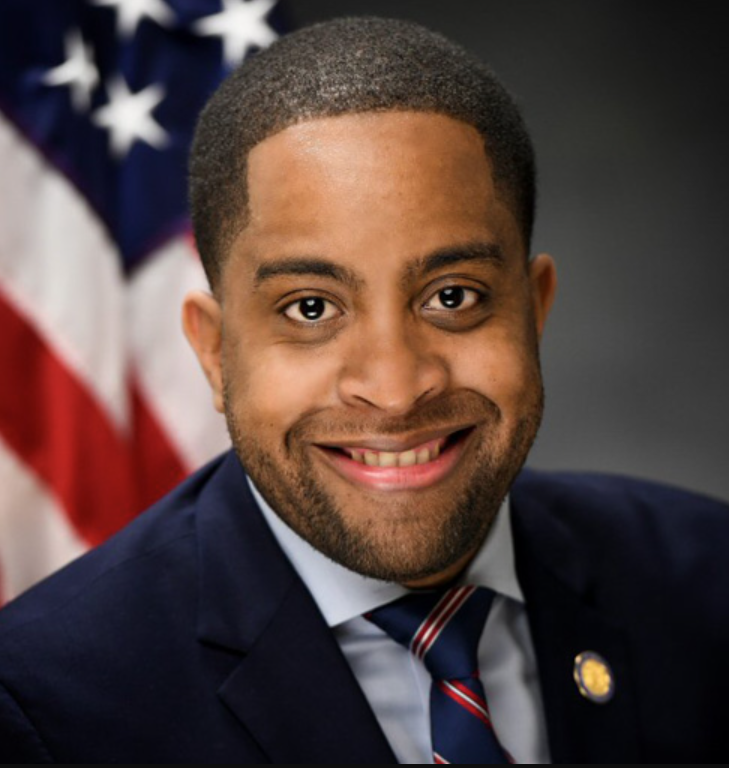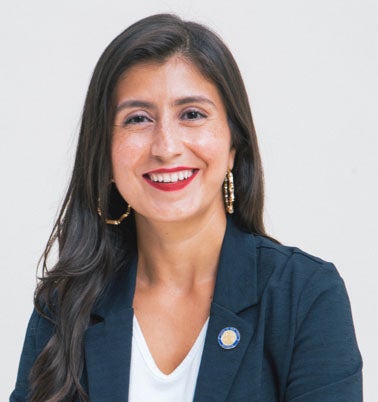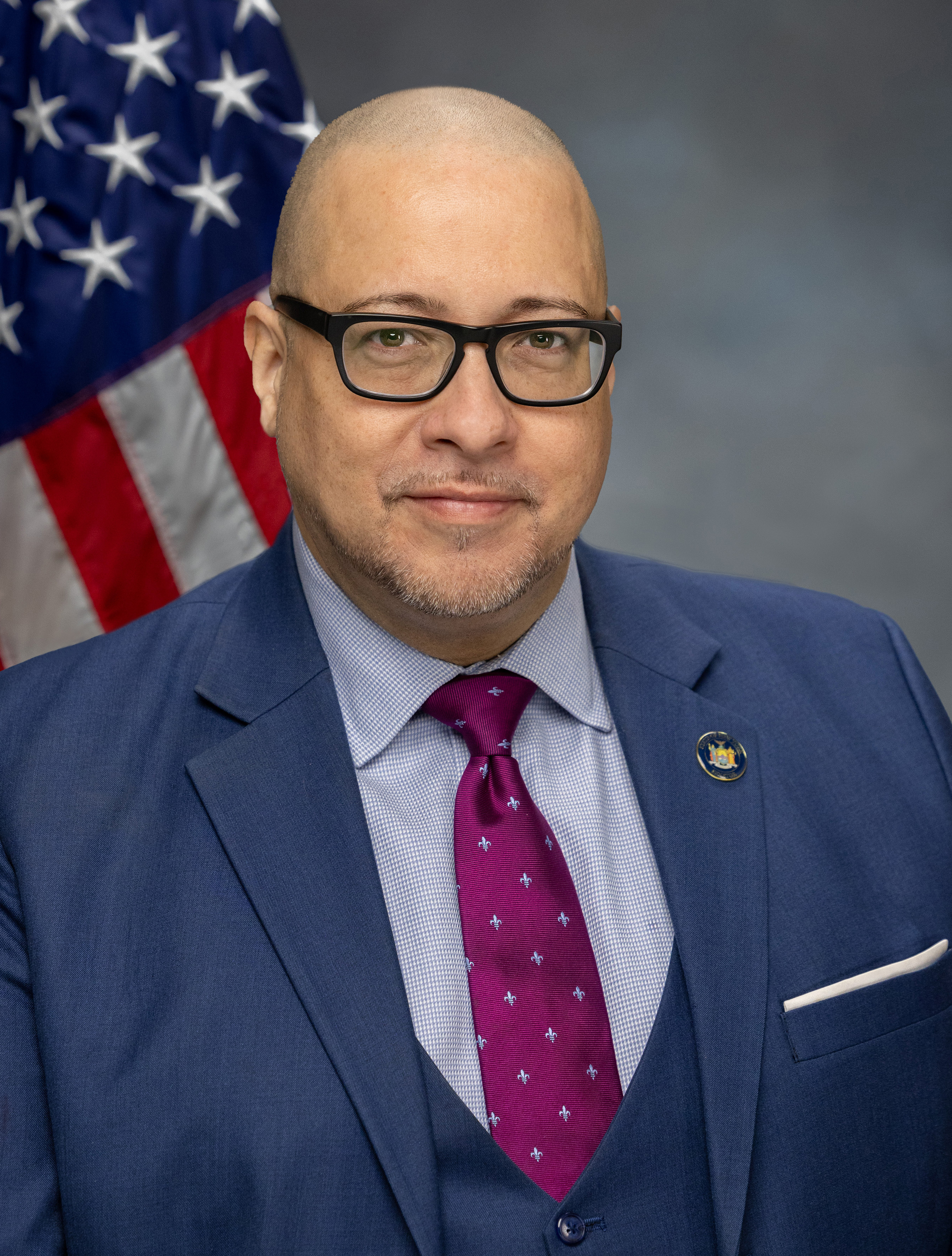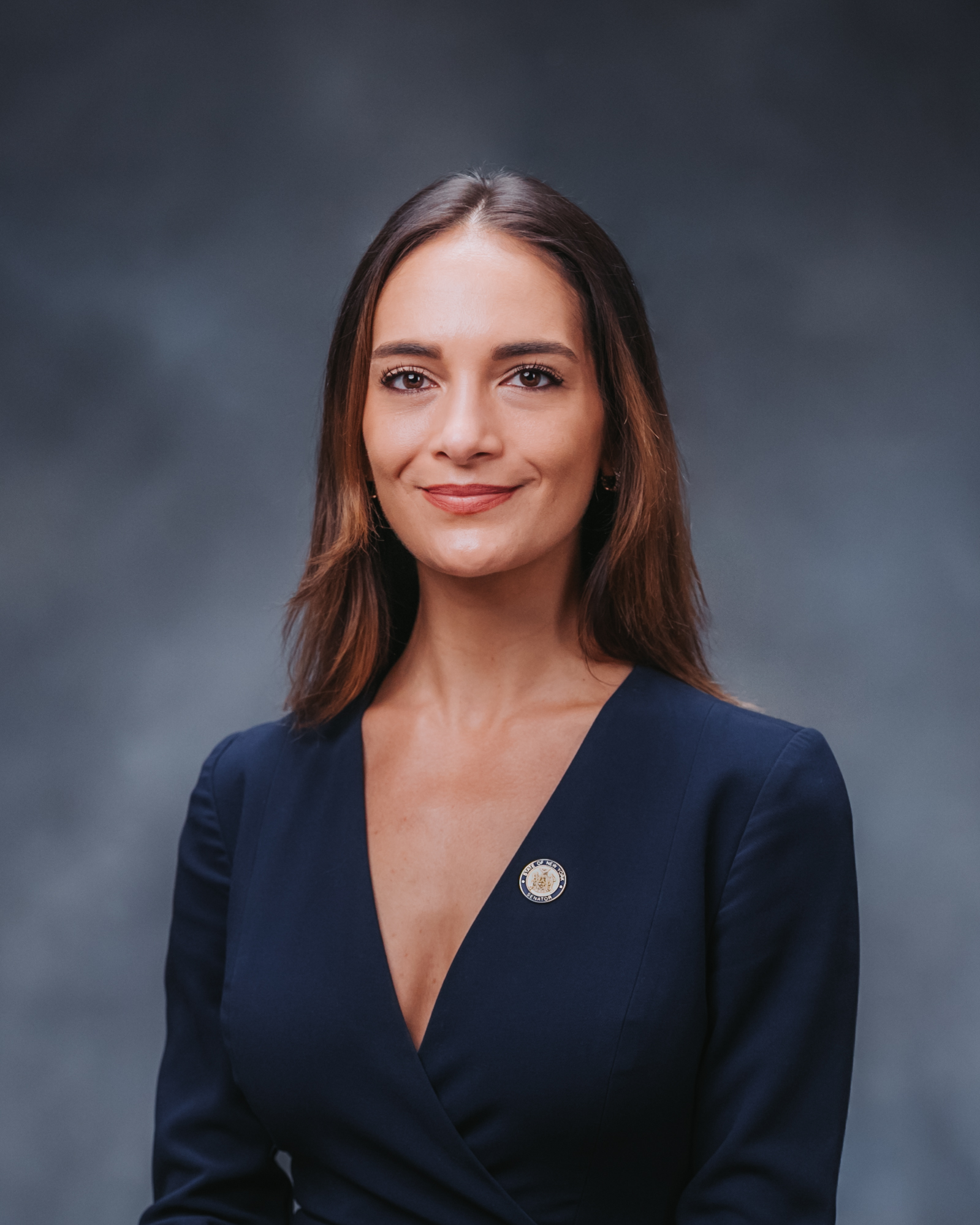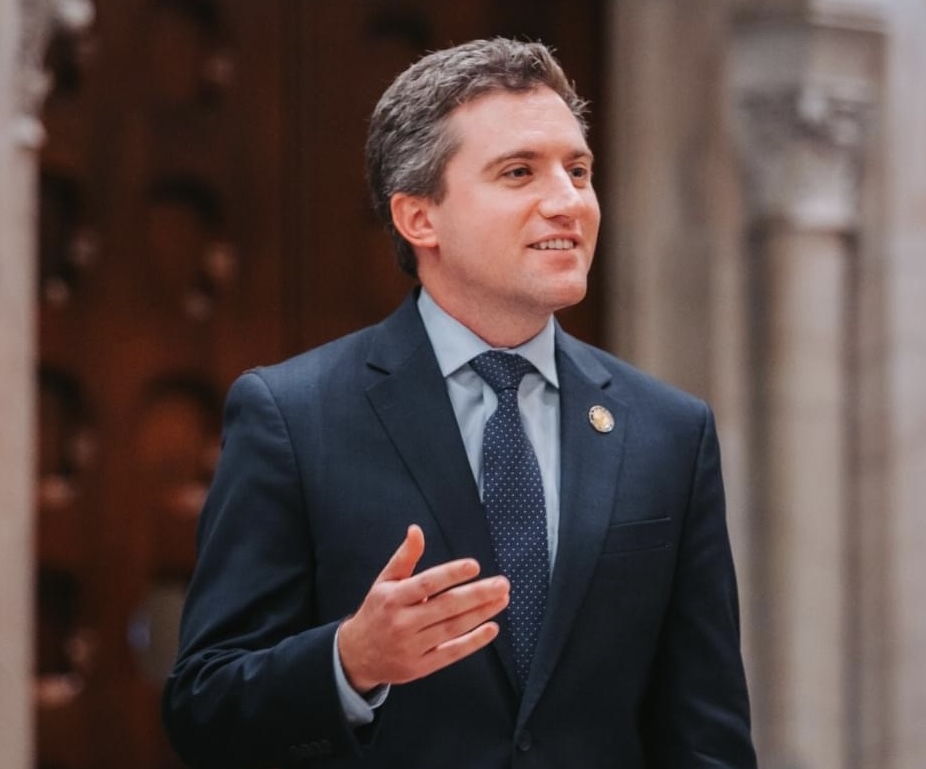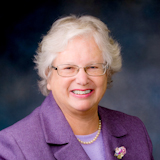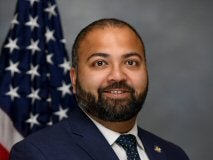| Date of Action |
Assembly Actions -
Lowercase Senate Actions - UPPERCASE |
|---|---|
| Jan 03, 2024 |
referred to finance |
| Jan 30, 2023 |
referred to finance |
Find your Senator and share your views on important issues.
Senate Bill S3245
2023-2024 Legislative Session
Establishes the universal child care act; repealer; appropriation
download bill text pdfSponsored By
(D, WF) 25th Senate District
Archive: Last Bill Status - In Senate Committee Finance Committee
- Introduced
-
- In Committee Assembly
- In Committee Senate
-
- On Floor Calendar Assembly
- On Floor Calendar Senate
-
- Passed Assembly
- Passed Senate
- Delivered to Governor
- Signed By Governor
Actions
co-Sponsors
(D) 36th Senate District
(D, WF) 55th Senate District
(D, WF) Senate District
(D) 30th Senate District
(D) 14th Senate District
(D, WF) 56th Senate District
(D) 34th Senate District
(D, WF) 59th Senate District
(D) 26th Senate District
(D, WF) 41st Senate District
(D, WF) Senate District
(D, WF) 31st Senate District
(D) 27th Senate District
(D, WF) Senate District
(D) 16th Senate District
(D) 20th Senate District
(D, WF) 13th Senate District
(D, WF) 33rd Senate District
(D, WF) 18th Senate District
(D) 32nd Senate District
(D, WF) 29th Senate District
(D) 42nd Senate District
(D) 11th Senate District
(D) Senate District
2023-S3245 (ACTIVE) - Details
- Current Committee:
- Senate Finance
- Law Section:
- Appropriations
- Laws Affected:
- Rpld §410 sub 3 ¶(b), amd Soc Serv L, generally; amd §101, Ed L; amd §2, Chap 493 of 2017; add §§99-qq, 99-rr & 99-ss, St Fin L
- Versions Introduced in Other Legislative Sessions:
-
2021-2022:
S7595
2025-2026: S3415
2023-S3245 (ACTIVE) - Sponsor Memo
BILL NUMBER: S3245
SPONSOR: BRISPORT
TITLE OF BILL:
An act to amend the social services law and the education law, in
relation to the provision of universal child care; to amend chapter 493
of the laws of 2017 amending the social services law relating to estab-
lishing a child care availability taskforce to evaluate the need for and
availability of child care throughout the state, in relation to the
effectiveness thereof; to amend the state finance law, in relation to
establishing certain funds to provide for the establishment and funding
of universal child care; to repeal certain provisions of the social
services law relating thereto; and making an appropriation therefor
SUMMARY OF PROVISIONS:
Section one establishes the name of the legislation as the "Universal
Child Care Act."
Section two sets forth the legislative findings.
Section three modifies the scope and duties of the child care task force
established under section 390-k of the social services law, so that the task force shall develop an implementation framework for a phased-in rollout of a universal child care system, using state and federal resources, and shall also make annual budget recommendations to the New York State legislature regarding the funding that is necessary to achieve a truly free and universal system. Section four amends subsection eight of section 390 of the social services law, to modify and update the manner in which the Office of Children and Family Services notifies the public of the availability of child care services. Section five amends subdivision one of section 410 of the social services law, to allow public welfare officials to participate in a system of free and universal child care. Section six amends subdivision two of section 410-b of the social services law regarding the manner in which the Office of Children and Family Services implements federal funding for child care. Section seven adds a new subdivision five to section 410-x of the social services law, to require a new cost estimation model for the payment of child care costs. Section eight amends section 410-z of the social services law to require the Office of Children and Family Services to prepare a report regarding the actual cost providers incur in providing child care pursuant to the previous section. Section nine amends subdivision one and paragraph (b) of subdivision five of section 410-c of the social services law, to increase state reimbursement rates to counties, cities, and towns that provide child care services, and to allow for further capital expenditures in areas that constitute child care deserts. Section ten amends subdivision eight of section 410-w of the social services law to require New York State to cover certain child care co-payments. Section eleven amends subdivision 410-x of the social services law to require New York State to cover certain child care co-payments. Section twelve adds a new subdivision nine to section 410-x of the social services law, requiring social services districts to establish differential payment rates for providers who care for children experi- encing homelessness, or who care for children during non-traditional hours, with New York State covering these additional costs. Section thirteen amends subdivision one of section 410 of the social services law to remove administrative requirements regarding work and immigration status. Section fourteen repeals paragraph (b) of subdivision three of section 410 of the social services law, and reletters paragraphs (c) and (d). Section fifteen amends subdivisions one and two of section 410-bb of the social services law to declare the New York legislature's desire to, move towards a free and universal child care system, with salary and benefits for workers at parity with that of public school teachers. Section sixteen amends subdivisions one and two of section 410-v of the social services law, to increase reimbursement rates from New York State to social services districts, and make all reasonable efforts to supple- ment federal block grant funding with state funding to provide universal coverage within a period of four years. Section seventeen amends subdivisions one and two of section 410-x of the social services law, to require outreach and support to ensure that eligible families who need child care receive support, and that any eligibility determinations required by federal law are the least restrictive and most efficient available, in order to avoid placing undue burdens on families applying for assistance. Section eighteen amends subdivision two of section 410-u of the social services law, to specify that the state block grant for child care shall be used to increase child care worker salaries, and to specify that New York State shall make all reasonable efforts to ensure child care cover- age for families who are not eligible for federal funding. Section nineteen amends section 410-cc of the social services law to specify that start up grants are to be used to serve areas that current- ly constitute child care deserts. Section twenty amends section 101 of the education law to establish an "office of early childhood education," which is tasked with coordinating with the Office of Children and Family Services to ensure that the implementation of funding for Universal Pre-K and 3-K For All programs are phased in in a manner that complements and supports child care providers within the state and provides equitable wages, benefits, and working conditions for child care workers, pursuant to the guidance established by task force established under section 390-k of the social services law. Section twenty one amends section two of chapter 493 of the laws of 2017 amending the social services law relating to establishing the child care availability task force, in order to extend its term through the year 2025. Section twenty two adds new section 99-oo, 99-pp, and 99-qq to the state finance law, requiring the creation of a child care workforce stabiliza- tion fund, a child care transitional reimbursement rate fund, and a child care infrastructure development fund. Section twenty three appropriates five billion dollars towards the development of a universal child care system in New York State. Section twenty four sets forth the effective date of the legislation. JUSTIFICATION: New York's child care infrastructure is in crisis: many parents have no access to affordable or quality care and many child care providers are forced to live in or near poverty. Decades of treating and funding child care as a private service rather than vital public infrastructure has left the system on the verge of collapse. Although some piecemeal approaches and temporary solutions have kept New York's child care system on life support, many child care centers have already been forced to close, and parents are struggling to access the child care they need. Today, where child care is still available, it is largely due to a dramatically underpaid workforce overwhelmingly made up of women - espe- cially Black women and women of color - who are paid wages that leave the majority in or near poverty. The COVID-19 pandemic has only made matters worse, exacerbating the many vulnerabilities of our child care system. Resolving the underlying causes of New York's child care crisis requires careful attention to detail, and the participation of all relevant stakeholders across New York State. Accordingly, this legislation has been carefully drafted to take into account the input of parents, child care providers, union leaders, advocates, and experts across the state. It has also been drafted with the input and insights of the Child Care Availability Task Force, which was convened in 2018 and issued its final report and recommendations in 2021. There is wide agreement that New York needs to pursue a "dramatically different approach to child care" and move instead towards a truly universal system, where child care is free at the point of service and educators are paid sufficient wages, much like our public school system. Accordingly, this legislation makes substantial programmatic changes to New York's child care system and makes significant investments in build- ing out New York's child care infrastructure to set New York on a clear path to building a universal child care system. It also ensures that the "Universal Pre-K" and "3-K For All" programs are implemented in a manner that does not leave behind providers who care for children under the age of three, who have been particularly hard hit by the present child care crisis. One of the primary concerns regarding the present child care system is that its workforce is dramatically underpaid. Much of the child care workforce lives in poverty with 65t of child care providers receiving such low wages that they are eligible for social safety net programs such as food stamps or Medicaid. Many professionals either do not enter the field at all, or are forced to leave it for higher paying jobs at places like fast food chains or telemarketing companies. This is not only an injustice, but also a tremendous vulnerability for our child care system because the understaffing problem leads to further shortages of available child care. Accordingly, in order to attract and maintain an adequate workforce, this legislation creates a new "child care work- force stabilization fund" that directly raises wages. It also makes further adjustments to state law in order to move New York towards a system where child care workers are properly recognized as educators, and achieve wages that that are at parity with those of public school teachers. Another primary concern regarding the present child care system is that our current system of means-tested subsidies imposes severe burdens on those who can least afford it. In some regions, a family of four, with two parents each working forty hours per week for minimum wage, will not qualify for subsidies, and sending their children to a child care center will cost 55.4% of their income. The lack of adequate subsidies is particularly problematic because, in New York State, one year of tuition for infant care at a child care center is more than double the cost of tuition at a SUNY comprehensive four-year college. Accordingly, this legislation requires substantial investments to guarantee child care subsidies for high-quality and culturally responsive child care that meets the needs of all children. The Child Care Availability Task Force correctly noted that, although "the state's use of federal stimulus funds has helped to suppress the damage, it alone is insufficient to rebuild the child care system." New York needs to make its own invest- ments, and this money will be well-spent: researchers estimate that for every $1 invested in early care and education in New York State, $1.86 is generated in additional spending within the state. This legislation further recognizes that the way we pay our child care providers within New York State is deeply flawed. Current subsidies are based on a "market rate survey" system that dramatically under-values the cost of high-quality child care. Accordingly, this legislation would shift New York away from the current "market rate survey" system, and towards a new cost estimation model that more accurately compensates providers for the true cost of care. This legislation further estab- lishes a "transitional reimbursement rate" fund so that New York can immediately offer more adequate compensation, pending the implementation of such a new system. In order to truly build out a universal child care system that goes beyond the current means-tested and market-based solutions, New York will need to make significant investments over time and build out its infrastructure to meet the needs of the 64% of New Yorkers who live in child care deserts, where the demand for child care far exceeds local capacity. Accordingly, this legislation further creates a new "child care infrastructure development fund," and modifies New York's system of distributing startup funds, so that New York can build its current capacity. Finally, as a matter of ongoing oversight, this legislation expands the scope and duties of the Child Care Availability Task Force, so that this group which has demonstrated its expertise and developed substantial institutional knowledge - will oversee a four-year transition towards a universal child care system, making annual budget recommendations and guiding the interactions between the Office of Children and Family Services and the New York State Education Department. This legislation will further create a new "office of early education," which will further coordinate the implementation of funding for Universal Pre-K and 3-K For All programs so that they are implemented in a manner that complements and supports child care providers within New York State. PRIOR LEGISLATIVE HISTORY: 2021-22: S.7595 FISCAL IMPLICATIONS FOR STATE AND LOCAL GOVERNMENTS: To be determined. EFFECTIVE DATE: This act shall take effect immediately; provided, however, that the amendments to section 390-k of the social services law made by section three of this act shall not affect the repeal of such section and shall be deemed repealed therewith; provided, however, that the amendments to subdivision 8 of section 410-w of the social services law made by section ten of this act and the amendments to subdivision 6 of section 410-x of the social services law made by section eleven of this act shall not affect the expiration of such subdivisions and shall be deemed to expire therewith; and provided, further, that the amendments made to subdivision 1 of section 410 of the social services law made by section thirteen of this act shall take effect on the same date and in the same manner as chapter 694 of the laws of 2022, takes effect.
2023-S3245 (ACTIVE) - Bill Text download pdf
S T A T E O F N E W Y O R K
________________________________________________________________________
3245
2023-2024 Regular Sessions
I N S E N A T E
January 30, 2023
___________
Introduced by Sens. BRISPORT, BAILEY, BROUK, CLEARE, COMRIE, COONEY,
GOUNARDES, HINCHEY, HOYLMAN-SIGAL, JACKSON, KAVANAGH, KENNEDY, LIU,
MYRIE, RAMOS, RIVERA, SALAZAR, SEPULVEDA, SERRANO, SKOUFIS, STAVISKY,
THOMAS -- read twice and ordered printed, and when printed to be
committed to the Committee on Finance
AN ACT to amend the social services law and the education law, in
relation to the provision of universal child care; to amend chapter
493 of the laws of 2017 amending the social services law relating to
establishing a child care availability taskforce to evaluate the need
for and availability of child care throughout the state, in relation
to the effectiveness thereof; to amend the state finance law, in
relation to establishing certain funds to provide for the establish-
ment and funding of universal child care; to repeal certain provisions
of the social services law relating thereto; and making an appropri-
ation therefor
THE PEOPLE OF THE STATE OF NEW YORK, REPRESENTED IN SENATE AND ASSEM-
BLY, DO ENACT AS FOLLOWS:
Section 1. Short title. This act shall be known and may be cited as
the "universal child care act".
§ 2. Legislative findings. The legislature hereby finds and declares
that New York State's child care sector is facing an economic crisis. In
2018, the legislature created a Child Care Availability Task Force. In
2021, that Task Force issued its final report, finding that the current
crisis "requires a dramatically different approach to child care: one
that recognizes that high-quality child care is a public good and that
provides the necessary public investment" to implement a system of high-
quality universal child care. This legislation will move New York
towards such a dramatically new system, where child care workers are
treated with dignity and compensated generously as the educators that
they are, where child care is free and available to all just like our
public education system is free and available for all, where burdensome
EXPLANATION--Matter in ITALICS (underscored) is new; matter in brackets
[ ] is old law to be omitted.
LBD05105-02-3
S. 3245 2 and ineffective means-testing requirements are ultimately eliminated, where public investments are directed towards those most in need as we build out our important child care infrastructure, where families have a meaningful ability to select the modalities that work best for their children, where child care providers are not forced to compete against each other, where high-quality is ensured for all so that we do not have a two-tiered child care system where the wealthy have high-quality care and the working poor have substandard care, where both federal and state funding is allocated generously, where the burden on localities is mini- mized, and where our child care system is truly universal. § 3. Section 390-k of the social services law, as added by chapter 493 of the laws of 2017, subdivisions 2 and 4 as amended by chapter 797 of the laws of 2021 and subdivision 3 as amended by chapter 133 of the laws of 2022, is amended to read as follows: § 390-k. [Child] UNIVERSAL care [availability] taskforce. 1. There shall be established [within the office of children and family services] a UNIVERSAL child care taskforce for the purpose of [evaluating the need for and availability of child care throughout the state] GUIDING NEW YORK TOWARDS A SYSTEM OF FREE AND UNIVERSAL CHILD CARE. 2. The taskforce shall be chaired by a representative of the executive chamber and the commissioners of the office of children and family services [and], the department of labor AND THE DEPARTMENT OF EDUCATION, or their designees. Members of the taskforce shall serve without compen- sation for three year terms, but may be reimbursed for actual costs incurred for participation on such taskforce. Ensuring adequate geographic, racial and ethnic representation, members of the taskforce shall be appointed by the governor and comprised as follows: (a) four individuals shall be appointed upon the recommendation of the speaker of the assembly, at least one of whom shall be a parent who has utilized subsidized child care and at least one of whom shall be a parent who has utilized unsubsidized child care, from different regions of the state; (b) four individuals shall be appointed upon the recommendation of the temporary president of the senate, at least one of whom shall be a parent who has utilized subsidized child care and at least one of whom shall be a parent who has utilized unsubsidized child care, from differ- ent regions of the state; (c) one individual shall be appointed upon the recommendation of the minority leader of the assembly; (d) one individual shall be appointed upon the recommendation of the minority leader of the senate; (e) two representatives of a child care resource and referral agency; (f) a minimum of three and a maximum of four representatives of home- based child care providers; (g) a minimum of three and a maximum of four representatives of center-based child care providers; (h) two representatives from the [business] PUBLIC EDUCATION communi- ty; (i) two representatives from unions that represent child care provid- ers; and (j) at least one representative from each of the following entities: (i) the office of temporary and disability assistance; (ii) the council on children and families; (iii) the department of taxation and finance; (iv) a regional economic development council; S. 3245 3 (v) the state university of New York or the city university of New York; (vi) the state education department; (vii) the early childhood advisory council; (viii) a social [service] SERVICES district or county government or an entity that advocates on behalf of social services or county govern- ments; [and] (ix) a non-profit child care advocacy organization; AND (X) AN ACADEMIC RESEARCH INSTITUTION, WITH EXPERTISE REGARDING DIFFER- ENT INTERNATIONAL CHILD CARE SYSTEMS. 3. The taskforce shall: (a) examine the NEGATIVE impact of the COVID-19 pandemic on child care in New York state, AS WELL AS THE NEGATIVE IMPACTS PRESENTED BY THE MULTIPLICITY OF DIFFERENT AGENCIES ADMINISTERING THE CHILD CARE SYSTEM, AND THE DIFFICULTIES POSED BY MEANS-TESTING REQUIREMENTS, WORK REQUIRE- MENTS, ACTIVITIES TESTS, AND IMMIGRATION STATUS REQUIREMENTS; (b) advise the state in developing an implementation framework leading to a FOUR-YEAR phased-in rollout of universal child care [using existing state and federal resources], WHICH IS FREE AT THE POINT OF SERVICE FOR ALL FAMILIES, WHICH DELIVERS HIGH-QUALITY CHILD CARE TO ALL NEW YORKERS, AND WHICH OFFERS SALARIES TO EDUCATORS COMPARABLE TO THOSE OF PUBLIC SCHOOL TEACHERS; (c) recommend [potential] solutions[, partnerships, or other ways] to address chronic child care workforce issues, THE AVAILABILITY OF CHILD CARE FOR NON-TRADITIOINAL WORK HOURS, and other concerns identified in the course of the examination required by this subdivision; (d) [assess the implementation of policies supported by] RECOMMEND FEDERAL LEGISLATIVE CHANGES NECESSARY TO ACCESS federally funded programs [through various stimulus packages], AS WELL AS STATE FUNDING APPROPRIATIONS NEEDED TO COMPLETELY ELIMINATE MEANS-TESTING REQUIRE- MENTS, WORK REQUIREMENTS, ACTIVITIES TESTS, AND IMMIGRATION STATUS REQUIREMENTS; [and] (E) HOW BEST TO PHASE IN THE ESTABLISHMENT OF A DEDICATED DEPARTMENT OF EARLY EDUCATION, WHICH SHALL POSSESS THE DUTIES REQUIRED TO MAINTAIN AND ADMINISTER THE FREE AND HIGH-QUALITY UNIVERSAL CHILD CARE SYSTEM PURSUANT TO THE RECOMMENDATIONS OF THE TASKFORCE; AND [(e)] (F) anything else the taskforce deems necessary. 4. [(a)] The taskforce shall report [its interim findings and recom- mendations in accordance with subdivision three of this section to the governor, the speaker of the assembly and the temporary president of the senate no later than November first, two thousand twenty-two and its final findings and recommendations no later than December thirty-first, two thousand twenty-three. (b) The taskforce shall also report on the implementation of any recommendations that resulted from the initial report required to be produced by the task force pursuant to subdivision four of chapter four hundred ninety-three of the laws of two thousand seventeen. Such addi- tional report shall be provided annually, beginning July first two thou- sand twenty-two] A FOUR-YEAR PLAN FOR A PHASED ROLL-OUT OF UNIVERSAL CHILD CARE IN THE STATE, AND MAKE ANNUAL RECOMMENDATIONS, STARTING IN NOVEMBER FIRST, TWO THOUSAND TWENTY-THREE THROUGH NOVEMBER THIRTIETH, TWO THOUSAND TWENTY-FOUR, FOR SPECIFIC APPROPRIATIONS FOR BUDGET ALLO- CATIONS THAT WOULD ALLOW FOR A TRULY FREE AND UNIVERSAL CHILD CARE SYSTEM, INCLUDING, BUT NOT LIMITED TO: (A) WAGE INCREASES FOR CHILD CARE WORKERS THAT ALLOW THEM TO ACHIEVE PAY PARITY WITH PUBLIC SCHOOL TEACH- ERS; (B) CAPITAL EXPENDITURES TO ALLOW FOR THE EXPANSION OF CHILD CARE S. 3245 4 INFRASTRUCTURE INTO COMMUNITIES MOST IN NEED; AND (C) STARTUP FUNDS TO ALLOW FOR THE CREATION OF NEW CHILD CARE PROGRAMS IN CHILD CARE DESERTS. SUCH RECOMMENDATIONS SHALL INCLUDE RECOMMENDATIONS TO IDENTIFY ALL REASONABLE MEANS OF MAXIMIZING THE ALLOCATION OF FEDERAL FUNDS, AS WELL AS SUPPLEMENTAL FUNDING FROM THE STATE THAT WOULD ALLOW FOR A TRULY FREE AND UNIVERSAL CHILD CARE SYSTEM. THE TASKFORCE REPORT SHALL FURTHER MAKE RECOMMENDATIONS FOR THE INTEGRATION OF CHILD CARE PROGRAMS INTO EXISTING PUBLIC PROGRAMS, SUCH AS PUBLIC SCHOOLS, PUBLIC UNIVERSITIES, AND PUBLIC HOUSING, TO DELIVER HIGH-QUALITY CHILD CARE TO ALL NEW YORKERS. SUCH RECOMMENDATIONS SHALL BE BASED ON WHAT IS NEEDED TO ACTUALLY ACHIEVE A HIGH-QUALITY UNIVERSAL CHILD CARE SYSTEM IN THE STATE, AND WHAT ADDI- TIONAL FUNDING WOULD BE NEEDED FROM THE STATE TO ACHIEVE THAT GOAL. EACH YEAR, FOLLOWING THE ANNUAL STATE BUDGET, THE TASKFORCE SHALL ALSO PROVIDE A SCORE CARD STATING HOW CLOSE NEW YORK HAS COME TO ACHIEVING A HIGH-QUALITY UNIVERSAL CHILD CARE SYSTEM, PROVIDED, HOWEVER, THAT TASK FORCE MEMBERS WHO ARE EMPLOYEES OF THE GOVERNOR'S OFFICE AND THE STATE LEGISLATURE SHALL RECUSE THEMSELVES FROM SUCH RATING PROCESS. THE TASK- FORCE SHALL REPORT ITS FINDINGS ANNUALLY. § 4. Subdivision 8 of section 390 of the social services law, as added by chapter 750 of the laws of 1990, is amended to read as follows: 8. The [department] OFFICE OF CHILDREN AND FAMILY SERVICES shall establish and maintain a list of all current registered and licensed child day care programs and a list of all programs whose license or registration has been revoked, rejected, terminated, or suspended. [Such information shall be available to the public, pursuant to procedures developed by the department] THE OFFICE OF CHILDREN AND FAMILY SERVICES SHALL WORK WITH SERVICE PROVIDERS AND CHILD CARE RESOURCE AND REFERRAL AGENCIES THROUGHOUT THE STATE TO GATHER INFORMATION TO CREATE AND MAIN- TAIN A PUBLICLY-SEARCHABLE, USER-FRIENDLY, AND LANGUAGE-ACCESSIBLE DATA- BASE OF AVAILABLE CHILD CARE FACILITIES ON THE OFFICE'S WEBSITE AND ON A COMPANION PHONE APPLICATION. SUCH DATABASE SHALL BE UPDATED IN REAL TIME AND SHALL PROVIDE AND BE SEARCHABLE BY THE FOLLOWING INFORMATION: (A) THE NAME AND ADDRESS OF THE FACILITY; (B) THE CAPACITY OF THE FACILITY; (C) WHETHER THE FACILITY IS FULLY ENROLLED OR HAS CURRENT AVAILABILI- TY, WITH THE AVAILABLE CAPACITY SPECIFIED BY AGE GROUP; (D) WHETHER THE FACILITY HAS A WAITING LIST FOR WHICH A FAMILY CAN APPLY; (E) THE AGE RANGE ALLOWABLE FOR THE FACILITY; (F) THE MODALITY FOR THE FACILITY; (G) THE OPERATING HOURS FOR THE FACILITY; (H) THE LANGUAGE OR LANGUAGES SPOKEN AT THE FACILITY; AND (I) WHETHER THE FACILITY HAS BEEN CITED FOR ANY VIOLATIONS, WITH ANY SUCH VIOLATIONS SEPARATED INTO "DANGEROUS" AND "NON-DANGEROUS" CATEGO- RIES, AND PROMINENT NOTICES INDICATING WHETHER ANY SUCH VIOLATIONS HAVE BEEN CURED OR ADDRESSED. THE OFFICE OF CHILDREN AND FAMILY SERVICES SHALL PROVIDE INFORMATION ON ITS WEBSITE IN ENGLISH, FRENCH, POLISH, AND THE TEN MOST COMMON NON- ENGLISH LANGUAGES SPOKEN BY INDIVIDUALS WITH LIMITED ENGLISH PROFICIENCY IN THE STATE, BASED ON UNITED STATES CENSUS DATA. § 5. Subdivision 1 of section 410 of the social services law, as added by chapter 395 of the laws of 1965, is amended to read as follows: 1. A public welfare official of a county, city or town is [authorized] OBLIGATED, provided funds have been made available therefor, to provide day care at public expense for children residing in his OR HER territory [who are eligible therefor pursuant to provisions of this title. Such S. 3245 5 care may be provided only in cases where it is determined, under crite- ria established by the department, that there is a need therefor because of inability of the parents to provide care and supervision for a substantial part of the day and that such care is in the best interest of the child and parent. Where the family is able to pay part or all of the costs of such care, payment of such fees as may be reasonable in the light of such ability shall be required] WITH THE AIM OF PROVIDING FREE AND UNIVERSAL CHILD CARE FOR ALL FAMILIES WITHIN SUCH TERRITORY. § 6. Subdivision 2 of section 410-b of the social services law, as added by chapter 395 of the laws of 1965 and such section as renumbered by chapter 640 of the laws of 1971, is amended and a new subdivision 5 is added to read as follows: 2. The [department of social welfare] OFFICE OF CHILDREN AND FAMILY SERVICES is hereby designated and empowered to act as the agent of the state in carrying out the provisions of any such federal law with respect to such day care facilities in this state. IN EXERCISING THIS DUTY AS AGENT OF THE STATE, THE OFFICE OF CHILDREN AND FAMILY SERVICES SHALL SEEK TO OBTAIN ANY WAIVERS OR PERMISSIONS FROM FEDERAL AGENCIES NECESSARY AND PROPER TO ALLOW THE STATE AND ITS VARIOUS SUBDIVISIONS TO IMPLEMENT A CHILD CARE SYSTEM THAT IS UNIVERSAL AND FREE AT THE POINT OF SERVICE, NOTWITHSTANDING THAT THE STATE'S CHILD CARE SYSTEM MAY BE MORE EXPANSIVE THAN WHAT IS BEING REIMBURSED WITH FEDERAL FUNDS. 5. TO THE EXTENT THAT FEDERAL FUNDS ARE OFFERED FOR CHILD CARE AND ARE CONTINGENT ON MATCHING FUNDS FROM THE STATE, THE STATE SHALL MAKE ALL REASONABLE EFFORTS TO MAXIMIZE THE ALLOCATION OF FEDERAL FUNDS BY MAKING SUFFICIENT STATE-LEVEL APPROPRIATIONS. § 7. Subdivisions 5, 6, 7 and 8 of section 410-x of the social services law are renumbered subdivisions 6, 7, 8 and 9 and a new subdi- vision 5 is added to read as follows: 5. (A) FOR EACH GROUP FOR WHICH THE OFFICE OF CHILDREN AND FAMILY SERVICES DETERMINES A SEPARATE PAYMENT RATE PURSUANT TO SUBDIVISION FOUR OF THIS SECTION, AND AT THE SAME FREQUENCY, SUCH OFFICE SHALL UTILIZE A COST ESTIMATION MODEL TO DETERMINE THE ACTUAL COST PROVIDERS INCUR WHEN PROVIDING HIGH-QUALITY CHILD CARE. THE COST ESTIMATION MODEL SHALL IDEN- TIFY AND TAKE INTO ACCOUNT COST DRIVERS INCLUDING BUT NOT LIMITED TO EMPLOYEE SALARY AND BENEFITS, ENROLLMENT LEVELS, FACILITY COSTS AND COMPLIANCE WITH STATUTORY AND REGULATORY REQUIREMENTS. WHERE A QUALITY RATING SYSTEM OR ANY QUALITY INDICATORS ARE BEING UTILIZED, THE COST ESTIMATION MODEL SHALL ALSO TAKE INTO ACCOUNT THE COST OF PROVIDING SERVICES AT EACH LEVEL OF QUALITY. (B) IN DEVELOPING SUCH MODEL THE OFFICE OF CHILDREN AND FAMILY SERVICES SHALL CONSULT WITH STAKEHOLDERS INCLUDING, BUT NOT LIMITED TO, REPRESENTATIVES OF CHILD CARE RESOURCE AND REFERRAL AGENCIES, CHILD CARE PROVIDERS, LABOR LEADERS FOR ANY LABOR UNIONS REPRESENTING CHILD CARE WORKERS IN THE STATE, AND ANY STATE ADVISORY COUNCIL ESTABLISHED PURSU- ANT TO 42 U.S.C.S. § 9831 ET. SEQ., AS AMENDED. THE COST ESTIMATION MODEL SHALL BE STATISTICALLY VALID, USING COMPLETE AND CURRENT DATA AND RIGOROUS COLLECTION METHODS. THE COST ESTIMATION MODEL SHALL FURTHER ACCOUNT FOR BIASES IN REPORTED DATA THAT TEND TO UNDERESTIMATE THE COST OF CARE, AND SHALL MAKE APPROPRIATE ADJUSTMENTS. § 8. Section 410-z of the social services law, as added by section 52 of part B of chapter 436 of the laws of 1997, is amended to read as follows: § 410-z. Reporting requirements. 1. Each social services district shall collect and submit to the [department] OFFICE OF CHILDREN AND FAMILY SERVICES, in such form and at such times as specified by the S. 3245 6 [department] OFFICE OF CHILDREN AND FAMILY SERVICES, such data and information regarding child care assistance provided under the block grant as the [department] OFFICE OF CHILDREN AND FAMILY SERVICES may need to comply with federal reporting requirements. 2. THE OFFICE OF CHILDREN AND FAMILY SERVICES SHALL PREPARE A REPORT DETAILING THE ACTUAL COST PROVIDERS INCUR WHEN PROVIDING CHILD CARE IN EACH SETTING, AS DETERMINED BY THE COST ESTIMATION MODEL ESTABLISHED IN PARAGRAPH (A) OF SUBDIVISION FIVE OF SECTION FOUR HUNDRED TEN-X OF THIS TITLE. THE REPORT SHALL DETAIL COST DATA FOR EACH SETTING, AGE GROUP, CARE PROVIDED TO CHILDREN WITH SPECIAL NEEDS, AND ANY OTHER GROUPING FOR WHICH A SEPARATE COST ESTIMATION IS CONDUCTED. SUCH DATA SHALL INCLUDE: (A) THE LEVEL OF QUALITY CARE AS DETERMINED BY A QUALITY RATING SYSTEM OR ANY QUALITY INDICATORS UTILIZED BY THE STATE; (B) A DESCRIPTION OF THE MAJOR COST DRIVERS FOR PROVIDING CARE; AND (C) A COMPARISON OF THE COSTS OF CHILD CARE FOR EACH GROUPING TO THE MARKET RATE DETERMINED BY THE OFFICE OF CHILDREN AND FAMILY SERVICES PURSUANT TO SUBDIVISION FOUR OF SECTION FOUR HUNDRED TEN-X OF THIS TITLE. THE REPORT SHALL BE SUBMITTED TO THE GOVERNOR, THE SPEAKER OF THE ASSEMBLY AND THE TEMPORARY PRESIDENT OF THE SENATE BY JUNE FIRST, TWO THOUSAND TWENTY-FIVE AND JUNE FIRST OF EVERY OTHER YEAR THEREAFTER. THE OFFICE OF CHILDREN AND FAMILY SERVICES SHALL POST THE INFORMATION CONTAINED IN THE REPORT ON ITS WEBSITE. § 9. Subdivision 1 and paragraph (b) of subdivision 5 of section 410-c of the social services law, subdivision 1 as added by chapter 1014 of the laws of 1969, paragraph (a) of subdivision 1 as amended by chapter 110 of the laws of 1971, and paragraph (b) of subdivision 5 as amended by chapter 277 of the laws of 1990, and such section as renumbered by chapter 640 of the laws of 1971, are amended to read as follows: 1. (a) Expenditures made by counties, cities, and towns for day care and its administration, and day care center projects, pursuant to the provisions of this title, shall, if approved by the department, be subject to reimbursement by the state, in accordance with the regu- lations of the department, as follows: There shall be paid to each coun- ty, city or town (1) the amount of federal funds, if any, properly received or to be received on account of such expenditures; (2) [fifty] NINETY per centum of its expenditures for day care and its adminis- tration and day care center projects, after first deducting therefrom any federal funds received or to be received on account thereof, and any expenditures defrayed by fees paid by parents or by other private contributions. (b) For the purpose of this title, expenditures for administration of day care shall include expenditures for compensation of employees in connection with the furnishing of day care, including but not limited to costs incurred for pensions, federal old age and survivors insurance and health insurance for such employees; training programs for personnel, operation, maintenance and service costs; and such other expenditures such as equipment costs, depreciation and charges and rental values as may be approved by the department. It [shall not] MAY include expendi- tures for capital costs IN APPROPRIATE CASES AT THE DISCRETION OF THE DEPARTMENT, PROVIDED THAT CAPITAL COSTS ARE PRIORITIZED IN AREAS THAT ARE CATEGORIZED AS CHILD CARE DESERTS. In the case of day care purchased from a non-profit corporation constituting an eligible borrower pursuant to title five-a of this article, expenditures shall include an allocable proportion of all operating costs of such facility as may be approved by the department including but not limited to the expenditures enumerated S. 3245 7 in this paragraph [(b)] and expenditures for amortization, interest and other financing costs of any mortgage loan made to such non-profit corporation. (b) The commissioner shall, within appropriations made available therefor, select proposed school age child day care programs which shall be eligible to receive an award [of no more than twenty-five thousand dollars] for start up or expansion costs, including planning, rental, operational and equipment costs, or minor renovations identified as being necessary in order for the program to comply with applicable state or local building, fire safety or licensing standards, based on plans submitted to him. The commissioner shall give preference to those areas of the state which are significantly underserved by existing school age child day care programs and to those programs which involve parents in the development and implementation of programs. The commissioner shall publicize this availability of funds to be used for purposes of this subdivision in awarding grants. Plans may be submitted by private not- for-profit corporations, organizations or governmental subdivisions. § 10. Subdivision 8 of section 410-w of the social services law, as amended by section 1 of part Z of chapter 56 of the laws of 2021, is amended to read as follows: 8. Notwithstanding any other provision of law, rule or regulations to the contrary, a social services district that implements a plan amend- ment to the child care portion of its child and family services plan, either as part of an annual plan update, or through a separate plan amendment process, where such amendment reduces eligibility for, or increases the family share percentage of, families receiving child care services, or that implements the process for closing child care cases as set forth in the district's approved child and family services plan, due to the district determining that it cannot maintain its current caseload because all of the available funds are projected to be needed for open cases, shall provide all families whose eligibility for child care assistance or family share percentage will be impacted by such action with at least thirty days prior written notice of the action. Provided, however, that a family receiving assistance pursuant to this title shall not be required to contribute more than WHAT IS REQUIRED BY FEDERAL LAW OR ten percent of their income exceeding the federal poverty level, WHICHEVER IS LOWER, AND THAT SUCH COST SHALL BE COVERED ENTIRELY BY THE STATE. § 11. Subdivision 6 of section 410-x of the social services law, as amended by section 2 of part Z of chapter 56 of the laws of 2021, is amended to read as follows: 6. Pursuant to department regulations, child care assistance shall be provided on a sliding fee basis based upon the family's ability to pay; provided, however, that a family receiving assistance pursuant to this title shall not be required to contribute more than WHAT IS REQUIRED BY FEDERAL LAW OR ten percent of their income exceeding the federal poverty level, WHICHEVER IS LOWER, AND THAT SUCH COST SHALL BE COVERED ENTIRELY BY THE STATE. § 12. Section 410-x of the social services law is amended by adding a new subdivision 9 to read as follows: 9. A SOCIAL SERVICES DISTRICT SHALL ESTABLISH DIFFERENTIAL PAYMENT RATES FOR CHILD CARE SERVICES PROVIDED BY LICENSED, REGISTERED OR ENROLLED CHILD CARE PROVIDERS AS REQUIRED BY THIS SUBDIVISION. (A) LOCAL SOCIAL SERVICES DISTRICTS SHALL ESTABLISH A DIFFERENTIAL PAYMENT RATE FOR CHILD CARE SERVICES PROVIDED BY LICENSED OR REGISTERED CHILD CARE PROVIDERS WHO PROVIDE CARE TO A CHILD OR CHILDREN EXPERIENC- S. 3245 8 ING HOMELESSNESS. SUCH DIFFERENTIAL PAYMENT RATE SHALL BE TWENTY PERCENT HIGHER THAN THE ACTUAL COST OF CARE OR THE APPLICABLE MARKET-RELATED PAYMENT RATE ESTABLISHED BY THE OFFICE OF CHILDREN AND FAMILY SERVICES IN REGULATIONS, WHICHEVER IS LESS. (B) LOCAL SOCIAL SERVICES DISTRICTS SHALL ESTABLISH A DIFFERENTIAL PAYMENT RATE FOR CHILD CARE SERVICES PROVIDED BY LICENSED, REGISTERED, OR ENROLLED CHILD CARE PROVIDERS WHO PROVIDE CARE TO A CHILD DURING NONTRADITIONAL HOURS. "NONTRADITIONAL HOURS" SHALL MEAN CARE PROVIDED IN THE EVENING, NIGHT, OR ON THE WEEKEND. SUCH DIFFERENTIAL PAYMENT RATE SHALL BE TWENTY PERCENT HIGHER THAN THE ACTUAL COST OF CARE OR THE APPLICABLE MARKET-RELATED PAYMENT RATE ESTABLISHED BY THE OFFICE OF CHILDREN AND FAMILY SERVICES IN REGULATIONS, WHICHEVER IS LESS. (C) THE COST OF THE DIFFERENTIAL PAYMENT RATES ESTABLISHED UNDER THIS SUBDIVISION SHALL BE COVERED BY THE STATE. § 13. Subdivision 1 of section 410 of the social services law, as amended by chapter 694 of the laws of 2022, is amended to read as follows: 1. A public welfare official of a county, city or town [is authorized] SHALL, provided funds have been made available therefor, [to] AND WITH THE STATE MAKING ALL REASONABLE EFFORTS TO OBTAIN FEDERAL FUNDING AND SUPPLEMENTING THOSE AMOUNTS WITH ADDITIONAL STATE FUNDING, provide day care at public expense for children residing in his OR HER territory who are eligible therefor pursuant to provisions of this title. Such care [may] SHALL be provided [only in cases where it is determined,] under criteria established by the office of children and family services, that there is a need and that such care is in the best interest of the child and parent; provided however that the public welfare official shall not [be required to] limit authorized child care services strictly based on the work, training, or educational schedule of the parents or the number of hours the parents spend in work, training, or educational activities, NOR SHALL THE PUBLIC WELFARE OFFICIAL LIMIT AUTHORIZED CHILD CARE SERVICES BASED ON PROOF OF IMMIGRATION STATUS. Where the family [is able to pay part or all of the costs of such care] INCOME IS MORE THAN ONE THOUSAND PERCENT OF THE POVERTY LINE, payment of such fees as may be reasonable in the light of such ability [shall] MAY be required TO THE EXTENT NECESSARY AS THE STATE TRANSITIONS TO A SYSTEM THAT IS FREE AND UNIVERSAL. TO THE EXTENT THERE ARE INSUFFICIENT FUNDS TO IMMEDIATELY SERVE ALL FAMILIES, THE STATE SHALL MAKE ALL REASONABLE EFFORTS TO INCREMENTALLY EXPAND TO UNIVERSAL ACCESS OVER A PERIOD OF FOUR YEARS, PURSUANT TO THE PHASE-IN PRIORITIES AND PRINCIPLES RECOMMENDED BY THE TASKFORCE UNDER SECTION THREE HUNDRED NINETY-K OF THIS ARTICLE. § 14. Paragraph (b) of subdivision 3 of section 410 of the social services law is REPEALED and paragraphs (c) and (d) are relettered para- graphs (b) and (c). § 15. Subdivisions 1 and 2 of section 410-bb of the social services law, subdivision 1 as added by chapter 503 of the laws of 1988, subdivi- sion 2 as amended by chapter 659 of the laws of 1988, are amended to read as follows: 1. The legislature finds and declares that a crisis exists in the availability and quality of child day care in New York state and that this crisis poses a danger both to the welfare and safety of the chil- dren and to the productivity of this state's workforce; that inadequate salaries and in many cases nonexistent benefit packages have substan- tially contributed to the existing crisis by precluding day care centers from recruiting and retaining necessary teaching and supervisory staff; that an extremely high turnover rate has interfered in many instances S. 3245 9 with the ability of day care centers to comply with regulatory require- ments and to properly serve the children in their care; and that because of these extraordinary circumstances New York state must intervene and provide assistance for recruitment and retention of child care workers, WITH THE GOAL OF CREATING A FREE AND UNIVERSAL CHILD CARE SYSTEM THAT IS AVAILABLE TO ALL, IN THE SAME MANNER AS THE PUBLIC SCHOOL SYSTEM, WITH- OUT THE BURDENS OF MEANS-TESTING. The legislature recognizes that a long-term solution to this crisis will require cooperative efforts among [the business community, local and state governments and families] ALL NEW YORKERS. 2. Within amounts appropriated specifically therefor, and after deducting funds as specified in subdivision three of this section, the commissioner shall allocate funds to local social services districts for grants to [eligible not-for-profit day care centers] CHILD CARE PROVID- ERS for retention and recruitment of teaching and supervisory staff, [as follows: (a) a city social services district with a population in excess of one million shall be allocated a portion of such funds based on an equal weighting of: (i) its proportion of the state population of children aged five and under, and (ii) its proportion of total claims for reimbursement received by the department by May thirty-first, nineteen hundred eighty-eight for the low income, transitional and teen parent day care programs authorized by chapter fifty-three of the laws of nineteen hundred eighty-seven. (b) all other eligible local social services districts shall be allo- cated the remaining portion of funds based on each district's propor- tionate share of licensed not-for-profit day care capacity relative to the total capacity of all such other eligible districts] WITH THE AIM OF PROVIDING STAFF WITH SALARY AND BENEFITS THAT IS AT PARITY WITH THAT OF LOCAL PUBLIC SCHOOL TEACHERS IN THE RELEVANT AREA. § 16. Subdivisions 1 and 2 of section 410-v of the social services law, subdivision 1 as added by section 52 of part B of chapter 436 of the laws of 1997, subdivision 2 as amended by chapter 214 of the laws of 1998, are amended to read as follows: 1. The part of the block GRANT that is determined to be available to social services districts for child care assistance shall be apportioned among the social services districts by the department according to an allocation plan developed by the department and approved by the director of the budget. The allocation plan shall [be based, at least in part, on historical costs and on the availability and cost of, and the need for, child care assistance in each social services district] AIM TO PROVIDE UNIVERSAL AND FREE CHILD CARE ON A STATEWIDE BASIS. Annual allocations shall be made on a federal fiscal year basis AND SHALL INCORPORATE THE ANNUAL RECOMMENDATIONS OF THE CHILD CARE TASKFORCE ESTABLISHED UNDER SECTION THREE HUNDRED NINETY-K OF THIS ARTICLE. 2. Reimbursement under the block grant to a social services district for its expenditures for child care assistance shall be available for [seventy-five] NINETY percent of the district's expenditures for child care assistance provided to those families in receipt of public assist- ance which are eligible for child care assistance under this title and for one hundred percent of the social services district's expenditures for other eligible families[; provided, however, that such reimbursement shall be limited to the social services district's annual state block grant allocation]. TO THE EXTENT THAT FAMILIES ARE NOT ELIGIBLE FOR FUNDING PURSUANT TO THIS PROVISION, THE STATE SHALL MAKE ALL REASONABLE S. 3245 10 EFFORTS TO ENSURE THAT FAMILIES NOT ELIGIBLE FOR FEDERALLY-FUNDED CHILD CARE HAVE ACCESS, PHASED-IN OVER A PERIOD OF FOUR YEARS, PURSUANT TO THE PHASE-IN PRIORITIES AND PRINCIPLES RECOMMENDED BY THE TASKFORCE UNDER SECTION THREE HUNDRED NINETY-K OF THIS ARTICLE. § 17. Subdivisions 1 and 2 of section 410-w of the social services law, subdivision 1 as amended by section 2 of part L of chapter 56 of the laws of 2022 and subdivision 2 as amended by chapter 569 of the laws of 2001, are amended to read as follows: 1. A social services district may use the funds allocated to it from the block grant to provide child care assistance to[: (a) families receiving public assistance when such child care assist- ance is necessary: to enable a parent or caretaker relative to engage in work, participate in work activities or perform a community service pursuant to title nine-B of article five of this chapter; to enable a teenage parent to attend high school or other equivalent training program; because the parent or caretaker relative is physically or mentally incapacitated; or because family duties away from home necessi- tate the parent or caretaker relative's absence; child day care shall be provided during breaks in activities, for a period of up to two weeks. Such child day care may be authorized for a period of up to one month if child care arrangements shall be lost if not continued, and the program or employment is scheduled to begin within such period; (b) families with incomes up to two hundred percent of the state income standard, or three hundred percent of the state income standard effective August first, two thousand twenty-two who are attempting through work activities to transition off of public assistance when such child care is necessary in order to enable a parent or caretaker rela- tive to engage in work provided such families' public assistance has been terminated as a result of increased hours of or income from employ- ment or increased income from child support payments or the family voluntarily ended assistance; provided that the family received public assistance at least three of the six months preceding the month in which eligibility for such assistance terminated or ended or provided that such family has received child care assistance under subdivision four of this section; and provided, the family income does not exceed eighty- five percent of the state median income; (c) families with incomes up to two hundred percent of the state income standard, or three hundred percent of the state income standard effective August first, two thousand twenty-two, which are determined in accordance with the regulations of the department to be at risk of becoming dependent on family assistance; provided, the family income does not exceed eighty-five percent of the state median income; (d) families with incomes up to two hundred percent of the state income standard, or three hundred percent of the state income standard effective August first, two thousand twenty-two, who are attending a post secondary educational program; provided, the family income does not exceed eighty-five percent of the state median income; and (e) other families with incomes up to two hundred percent of the state income standard, or three hundred percent of the state income standard effective August first, two thousand twenty-two, which the social services district designates in its consolidated services plan as eligi- ble for child care assistance in accordance with criteria established by the department; provided, the family income does not exceed eighty-five percent of the state median income] FAMILIES WHO NEED CHILD CARE OR WHO ARE HAVING TROUBLE AFFORDING CHILD CARE, TO THE MAXIMUM EXTENT PERMISSI- BLE UNDER FEDERAL LAWS AND REGULATIONS. TO THE EXTENT THAT FAMILIES ARE S. 3245 11 NOT ELIGIBLE FOR FUNDING PURSUANT TO THIS PROVISION, THE STATE SHALL MAKE ALL REASONABLE EFFORTS TO ENSURE THAT FAMILIES NOT ELIGIBLE FOR FEDERALLY-FUNDED CHILD CARE HAVE ACCESS, PHASED-IN OVER A PERIOD OF FOUR YEARS, PURSUANT TO THE PHASE-IN PRIORITIES AND PRINCIPLES RECOMMENDED BY THE TASKFORCE UNDER SECTION THREE HUNDRED NINETY-K OF THIS ARTICLE. 2. [For the purposes of this title, the term "state income standard" means the most recent federal income official poverty line (as defined and annually revised by the federal office of management and budget) updated by the department for a family size of four and adjusted by the department for family size] EACH SOCIAL SERVICES DISTRICT SHALL CONDUCT EXTENSIVE AND LANGUAGE-ACCESSIBLE OUTREACH TO FAMILIES WHO NEED CHILD CARE OR WHO ARE HAVING TROUBLE AFFORDING CHILD CARE. TO THE EXTENT THAT SOCIAL SERVICES DISTRICTS OR THE OFFICE OF CHILDREN AND FAMILY SERVICES ARE REQUIRED TO EXAMINE FAMILIES' INCOMES PURSUANT TO FEDERAL LAWS OR REGULATIONS, THEY SHALL USE THE LEAST RESTRICTIVE AND MOST EFFICIENT MEANS AVAILABLE TO AVOID PLACING UNDUE BURDENS ON FAMILIES APPLYING FOR ASSISTANCE. TO THE EXTENT THAT FAMILIES APPLYING FOR ASSISTANCE ARE REQUIRED TO PROVIDE PROOF OF ELIGIBILITY, EACH LOCAL SOCIAL SERVICES DISTRICT AND THE OFFICE OF CHILDREN AND FAMILY SERVICES SHALL MAKE ALL REASONABLE EFFORTS TO PROVIDE ASSISTANCE IN COMPLETING ALL NECESSARY DOCUMENTS EXPEDITIOUSLY. § 18. Subdivision 2 of section 410-u of the social services law, as added by section 1 of part L of chapter 56 of the laws of 2022, is amended to read as follows: 2. The state block grant for child care shall be divided into two parts pursuant to a plan developed by the department and approved by the director of the budget. One part shall be retained by the state to provide child care on a statewide basis to special groups and for activ- ities to increase the availability and/or quality of child care programs, including, but not limited to, the start-up of child care programs, THE INCREASE OF CHILD CARE WORKER SALARIES, the operation of child care resource and referral programs, training activities, the regulation and monitoring of child care programs, the development of computerized data systems, and consumer education, provided however, that child care resource and referral programs funded under title five-B of article six of this chapter shall meet additional performance stand- ards developed by the department of social services including but not limited to: increasing the number of child care placements for ALL persons, WITH PRIORITY GIVEN TO PERSONS who are at or below [two hundred percent of the state income standard, or three hundred percent of the state income standard effective August first, two thousand twenty-two, provided such persons are at or below eighty-five percent of the state median income,] ONE THOUSAND PERCENT OF THE FEDERAL POVERTY LINE; with emphasis on placements supporting local efforts in meeting federal and state work participation requirements, increasing technical assistance to all modalities of legal child care to persons, WITH A PRIORITY GIVEN TO PERSONS who are at or below [two hundred percent of the state income standard, or three hundred percent of the state income standard effec- tive August first, two thousand twenty-two, provided such persons are at or below eighty-five percent of the state median income,] ONE THOUSAND PERCENT OF THE FEDERAL POVERTY LINE; including the provision of training to assist providers in meeting child care standards or regulatory requirements[,]; and creating new child care opportunities, and assist- ing social services districts in assessing and responding to child care needs for ALL persons, WITH PRIORITY GIVEN TO PERSONS at or below [two hundred percent of the state income standard, or three hundred percent S. 3245 12 of the state income standard effective August first, two thousand twen- ty-two, provided such persons are at or below eighty-five percent of the state median income] ONE THOUSAND PERCENT OF THE FEDERAL POVERTY LINE. The department shall have the authority to withhold funds from those agencies which do not meet performance standards. Agencies whose funds are withheld may have funds restored upon achieving performance stand- ards. The other part shall be allocated to social services districts to provide child care assistance to families receiving family assistance and to other low income families. TO THE EXTENT THAT FAMILIES ARE NOT ELIGIBLE FOR FUNDING PURSUANT TO THIS SUBDIVISION, THE STATE SHALL MAKE ALL REASONABLE EFFORTS TO ENSURE THAT FAMILIES NOT ELIGIBLE FOR FEDERAL- LY-FUNDED CHILD CARE HAVE ACCESS, PHASED-IN OVER A PERIOD OF FOUR YEARS, PURSUANT TO THE PHASE-IN PRIORITIES AND PRINCIPLES RECOMMENDED BY THE TASKFORCE UNDER SECTION THREE HUNDRED NINETY-K OF THIS ARTICLE. § 19. Section 410-cc of the social services law, as amended by chapter 882 of the laws of 1990, is amended to read as follows: § 410-cc. Start up grants for child day care. The commissioner shall provide funds to start up grants to not-for-profit organizations or corporations for the development of new or expanded all day child day care programs including costs related to planning, renting, renovating, operating, and purchasing equipment. The commissioner shall establish guidelines including, but not limited to, allowable costs, and criteria for eligibility for grants giving preference to those child day care providers who [will, to the maximum extent feasible, target services to households having incomes up to two hundred percent of the federal poverty standard] SERVE AREAS THAT CURRENTLY CONSTITUTE CHILD CARE DESERTS, AND WITH THE AIM OF DEVELOPING NEW YORK'S STATEWIDE UNIVERSAL CHILD CARE INFRASTRUCTURE. The commissioner shall WIDELY publicize the availability of funds AND CONDUCT EXTENSIVE OUTREACH IN A LANGUAGE-AC- CESSIBLE MANNER TO DEVELOP THE STATE'S UNIVERSAL CHILD CARE INFRASTRUC- TURE. [No awards shall be granted which exceed twenty-five hundred dollars for a new family day care provider or new group family day care provider, and one hundred thousand dollars for a new child day care center.] Child care resource and referral agencies [may] SHALL receive family day care start up grants [not to exceed two thousand five hundred dollars per new provider] if the agency trains such new family provider and thereby expands the supply of family day care programs in the commu- nity. The commissioner shall give preference to those communities which are significantly underserved by existing programs and to those programs which and those providers who will serve infants under two years of age. § 20. Section 101 of the education law is amended to read as follows: § 101. Education department; regents of the university. There shall continue to be in the state government an education department. The department is charged with the general management and supervision of all public schools and all of the educational work of the state, including the operations of The University of the State of New York and the exer- cise of all the functions of the education department, of The University of the State of New York, of the regents of the university and of the commissioner of education and the performance of all their powers and duties, which were transferred to the education department [by section three hundred twelve of the state departments law] or shall have been prescribed by law before March sixteenth, nineteen hundred twenty-seven, whether in terms vested in such department or university or in any sub- department, division or bureau thereof or in such commissioner, board or officer, and such functions, powers and duties shall continue to be vested in the education department continued by this chapter and shall S. 3245 13 continue to be exercised and performed therein by or through the appro- priate officer, sub-department, division or bureau thereof, together with such functions, powers and duties as hereafter may be conferred or imposed upon such department by law. THE EDUCATION DEPARTMENT SHALL ALSO ESTABLISH AN OFFICE OF EARLY EDUCATION, WHICH SHALL BE TASKED WITH COOR- DINATING WITH THE OFFICE OF CHILDREN AND FAMILY SERVICES TO ENSURE THAT THE IMPLEMENTATION OF FUNDING FOR UNIVERSAL PRE-K AND 3-K FOR ALL PROGRAMS ARE PHASED IN IN A MANNER THAT COMPLEMENTS AND SUPPORTS CHILD CARE PROVIDERS WITHIN THE STATE AND PROVIDES EQUITABLE WAGES, BENEFITS, AND WORKING CONDITIONS FOR CHILD CARE WORKERS, PURSUANT TO THE GUIDANCE ESTABLISHED BY THE TASKFORCE UNDER SECTION THREE HUNDRED NINETY-K OF THE SOCIAL SERVICES LAW. All the provisions of this chapter, in so far as they are not inconsistent with the provisions of this chapter as hereby amended or may be made applicable, shall apply to the education depart- ment continued by this chapter as hereby amended and to The University of the State of New York, the board of regents of the university, the commissioner [of education] and to the divisions, bureaus and officers in such department. The head of the department shall continue to be the regents of The University of the State of New York, who shall appoint, and at pleasure may remove, the commissioner [of education]. The commissioner shall continue to be the chief administrative officer of the department. The regents also may appoint and, at pleasure, remove a deputy commissioner [of education], who shall perform such duties as the regents may assign to him by rule and who, in the absence or disability of the commissioner or when a vacancy exists in the office of commis- sioner, shall exercise and perform the functions, powers and duties conferred or imposed on the commissioner by this chapter. The regents of The University of the State of New York shall continue to constitute a board and The University of the State of New York, which was continued under such name by section two of article eleven of the constitution, shall continue to be governed and all its corporate powers to be exer- cised by such board. § 21. Section 2 of chapter 493 of the laws of 2017 amending the social services law relating to establishing a child care availability task- force to evaluate the need for and availability of child care throughout the state, as amended by chapter 797 of the laws of 2021, is amended to read as follows: § 2. This act shall take effect immediately and shall expire December 31, [2024] 2027 when upon such date the provisions of this act shall be deemed repealed. § 22. The state finance law is amended by adding three new sections 99-qq, 99-rr, and 99-ss to read as follows: § 99-QQ. CHILD CARE WORKFORCE STABILIZATION FUND. 1. THERE IS HEREBY ESTABLISHED IN THE CUSTODY OF THE STATE COMPTROLLER AND THE COMMISSIONER OF TAXATION AND FINANCE A FUND TO BE KNOWN AS THE CHILD CARE WORKFORCE STABILIZATION FUND. 2. SUCH FUND SHALL CONSIST OF ALL MONEYS COLLECTED THEREFOR OR CREDIT- ED OR TRANSFERRED THERETO FROM ANY OTHER FUND, ACCOUNT OR SOURCE. ANY INTEREST RECEIVED BY THE COMPTROLLER ON MONEYS ON DEPOSIT IN THE CHILD CARE WORKFORCE STABILIZATION FUND SHALL BE RETAINED IN AND BECOME A PART OF SUCH FUND. 3. MONEYS IN THE CHILD CARE WORKFORCE STABILIZATION FUND, FOLLOWING APPROPRIATION BY THE LEGISLATURE, SHALL BE UTILIZED TO DIRECTLY RAISE WAGES AMONG PARTICIPATING PROGRAMS AS NEW YORK ADJUSTS ITS REIMBURSEMENT RATES TO COVER THE TRUE COST OF CHILD CARE, AND TO ALLOW CHILD CARE PROVIDERS TO PAY STAFF ADEQUATE WAGES AND BENEFITS AT PARITY WITH PUBLIC S. 3245 14 SCHOOL TEACHERS AS NEW YORK STATE RESTRUCTURES ITS ECONOMY TO REFLECT THE TRUE VALUE OF THIS IMPORTANT WORK. SUCH MONEYS SHALL BE ALLOCATED THROUGH AGENCIES INCLUDING, BUT NOT LIMITED TO, THE OFFICE OF CHILDREN AND FAMILY SERVICES. § 99-RR. CHILD CARE TRANSITIONAL REIMBURSEMENT RATE FUND. 1. THERE IS HEREBY ESTABLISHED IN THE CUSTODY OF THE STATE COMPTROLLER AND THE COMMISSIONER OF TAXATION AND FINANCE A FUND TO BE KNOWN AS THE CHILD CARE TRANSITIONAL REIMBURSEMENT RATE FUND. 2. SUCH FUND SHALL CONSIST OF ALL MONEYS COLLECTED THEREFOR OR CREDIT- ED OR TRANSFERRED THERETO FROM ANY OTHER FUND, ACCOUNT OR SOURCE. ANY INTEREST RECEIVED BY THE COMPTROLLER ON MONEYS ON DEPOSIT IN THE CHILD CARE TRANSITIONAL REIMBURSEMENT RATE FUND SHALL BE RETAINED IN AND BECOME A PART OF SUCH FUND. 3. MONEYS IN THE CHILD CARE TRANSITIONAL REIMBURSEMENT RATE FUND, FOLLOWING APPROPRIATION BY THE LEGISLATURE, SHALL BE UTILIZED IN A MANNER THAT REFLECTS A TRANSITIONAL REIMBURSEMENT RATE STRUCTURE BASED ON THE RESULTS OF THE FORTHCOMING CHILD CARE MARKET RATE SURVEY OR THE EXISTING SURVEY, WHICHEVER RESULTS IN HIGHER RATES. REIMBURSEMENT RATES SHALL BE SET AT THE NINETIETH PERCENTILE OF MARKET RATES IN EACH REGION TO ENSURE THAT PER CHILD AMOUNTS ARE SUFFICIENT TO NOT DISRUPT THE CHILD CARE SECTOR DURING THIS TRANSITION FROM A MARKET RATE-BASED MODEL TO A MODEL BASED ON THE TRUE COST OF QUALITY CARE. DURING THE PHASE-IN PERI- OD, ENTRY LEVEL STAFF SHALL BE PAID AT LEAST A LIVING WAGE, WITH MORE EXPERIENCED STAFF COMPENSATED AT A PROPORTIONATELY HIGHER RATE AND WITH COMPENSATION PROGRESSIVELY INCREASING OVER THE COURSE OF THE TRANSITION PERIOD. SUCH MONEYS SHALL BE ALLOCATED THROUGH AGENCIES INCLUDING, BUT NOT LIMITED TO, THE OFFICE OF CHILDREN AND FAMILY SERVICES. § 99-SS. CHILD CARE INFRASTRUCTURE DEVELOPMENT FUND. 1. THERE IS HEREBY ESTABLISHED IN THE CUSTODY OF THE STATE COMPTROLLER AND THE COMMISSIONER OF TAXATION AND FINANCE A FUND TO BE KNOWN AS THE CHILD CARE INFRASTRUCTURE DEVELOPMENT FUND. 2. SUCH FUND SHALL CONSIST OF ALL MONEYS COLLECTED THEREFOR OR CREDIT- ED OR TRANSFERRED THERETO FROM ANY OTHER FUND, ACCOUNT OR SOURCE. ANY INTEREST RECEIVED BY THE COMPTROLLER ON MONEYS ON DEPOSIT IN THE CHILD CARE INFRASTRUCTURE DEVELOPMENT FUND SHALL BE RETAINED IN AND BECOME A PART OF SUCH FUND. 3. MONEYS IN THE CHILD CARE INFRASTRUCTURE DEVELOPMENT FUND, FOLLOWING APPROPRIATION BY THE LEGISLATURE, SHALL BE USED TO BUILD AND DEVELOP CHILD CARE INFRASTRUCTURE IN CONNECTION WITH EXISTING PUBLIC INSTI- TUTIONS SUCH AS PUBLIC UNIVERSITIES, PUBLIC SCHOOLS, AND PUBLIC HOUSING. § 23. The sum of five billion dollars ($5,000,000,000) is hereby appropriated out of any moneys in the state treasury in the general fund to the credit of the state purposes account, not otherwise appropriated, and made immediately available as set forth herein. Such funds shall be allocated as follows: (a) Three billion dollars ($3,000,000,000) shall be allocated to guar- antee access to child care subsidies to high-quality and culturally responsive child care that meets the needs of all children, including children with disabilities, those experiencing trauma, multilingual learners, families who work non-traditional hours, and families experi- encing homelessness or in transitional housing. Such moneys shall be allocated through agencies including, but not limited to, the office of children and family services. (b) One billion dollars ($1,000,000,000) shall be allocated to the child care workforce stabilization fund established pursuant to section 99-qq of the state finance law. S. 3245 15 (c) Six hundred million dollars ($600,000,000) shall be allocated to the child care transitional reimbursement rate fund pursuant to section 99-rr of the state finance law. (d) Four hundred million dollars ($400,000,000) shall be allocated to the child care infrastructure development fund pursuant to section 99-ss of the state finance law. § 24. This act shall take effect immediately; provided, however, that the amendments to section 390-k of the social services law made by section three of this act shall not affect the repeal of such section and shall be deemed repealed therewith; provided, however, that the amendments to subdivision 8 of section 410-w of the social services law made by section ten of this act and the amendments to subdivision 6 of section 410-x of the social services law made by section eleven of this act shall not affect the expiration of such subdivisions and shall be deemed to expire therewith; and provided, further, that the amendments made to subdivision 1 of section 410 of the social services law made by section thirteen of this act shall take effect on the same date and in the same manner as chapter 694 of the laws of 2022, takes effect.
Comments
Open Legislation is a forum for New York State legislation. All comments are subject to review and community moderation is encouraged.
Comments deemed off-topic, commercial, campaign-related, self-promotional; or that contain profanity, hate or toxic speech; or that link to sites outside of the nysenate.gov domain are not permitted, and will not be published. Attempts to intimidate and silence contributors or deliberately deceive the public, including excessive or extraneous posting/posts, or coordinated activity, are prohibited and may result in the temporary or permanent banning of the user. Comment moderation is generally performed Monday through Friday. By contributing or voting you agree to the Terms of Participation and verify you are over 13.
Create an account. An account allows you to sign petitions with a single click, officially support or oppose key legislation, and follow issues, committees, and bills that matter to you. When you create an account, you agree to this platform's terms of participation.
